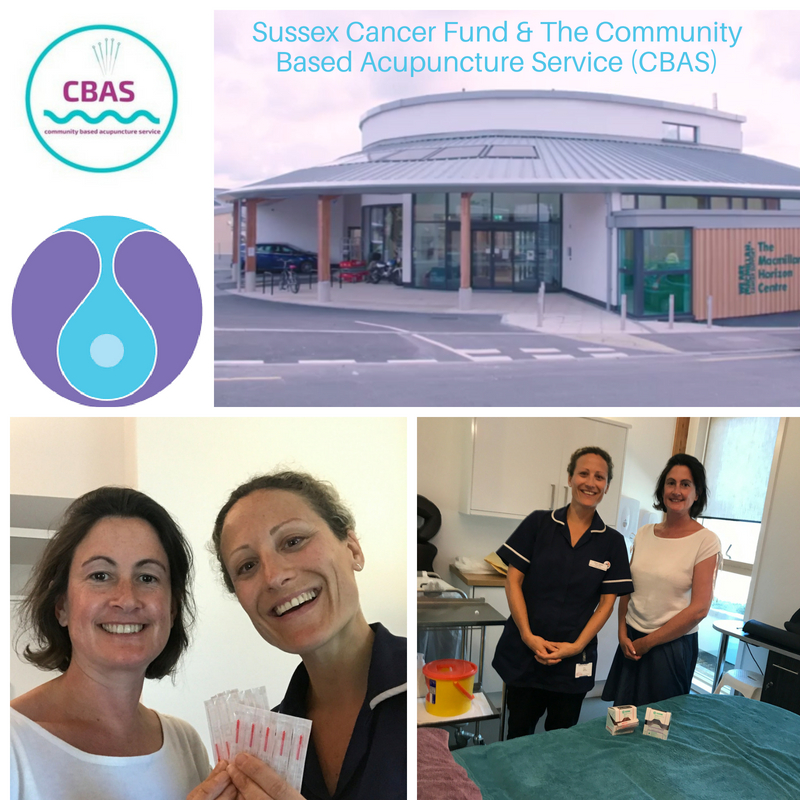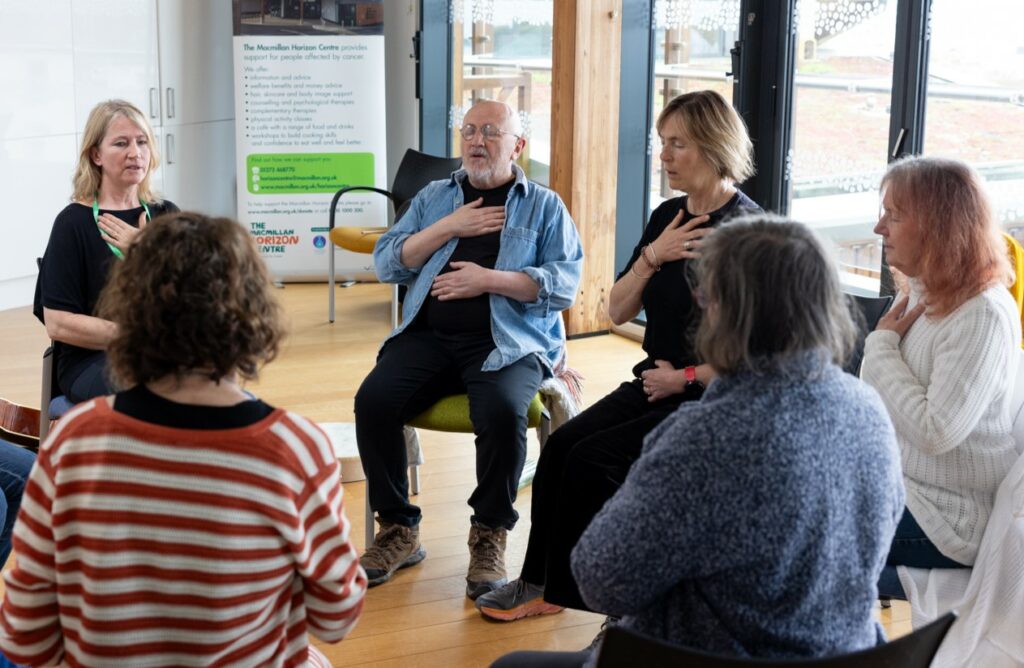
CBAS started in November 2017 as a partnership between Sussex Cancer Fund (SCF), Macmillan and the Community Based Acupuncture Service run by two medical acupuncturists, Dr Carolyn Rubens (President of the British Medical Acupuncture Society and GP) and Anna Joseph (Chemotherapy Sister, SCC). The Sussex Cancer Fund supplies the funding for the clinic and Macmillan provides the venue and administrative support.
The need arose out of the increasing numbers of patients experiencing side effects from their cancer treatment such as joint pains, chemotherapy induced peripheral neuropathy, hot flushes and anxiety. Patients have often sought out treatment from traditional acupuncturists but providing treatment from medical acupuncturists is both novel and pioneering.
The difference between Medical and traditional Acupuncture
Western medical acupuncture is a therapeutic modality involving the insertion of fine needles; it is an adaptation of Chinese/traditional acupuncture but using current knowledge of anatomy, physiology and pathology, and the principles of evidence based medicine. While Western medical acupuncture has evolved from Chinese acupuncture, its practitioners no longer adhere to concepts such as Yin/Yang and circulation of qi, and regard acupuncture as part of conventional medicine rather than a complete “alternative medical system”. It acts mainly by stimulating the nervous system, and its known modes of action include local antidromic axon reflexes, segmental and extrasegmental neuromodulation, and other central nervous system effects. Western medical acupuncture is principally used by conventional healthcare practitioners, most commonly in primary care. It is mainly used to treat musculoskeletal pain, including myofascial trigger point pain. It is also effective for postoperative pain and nausea.
The CBAS offer a course of 6 weekly treatments to patients referred by their clinician with the initial assessment carried out by Carolyn and the follow ups done by both Carolyn and Anna. Some patients are taught “DIY’ needling at the end of treatment.
Patients that have benefitted
In the first 6 months of the service the team have treated
- 67 referrals (all of whom were suitable for acupuncture) 45 patients have been or are being treated with a further 10 on the waiting list and 10 either undecided at this time or may use the service in the future.
The Feedback so far has been very positive with high levels of satisfaction from clinicians and patients alike.
Here are a few testimonials from patients who have completed 6 weeks of treatment;
What has been most important to you?
Anna always took time to ask how things had been since the previous session, listen to feedback and adjust treatment accordingly to suit. They are both very friendly and professional in their work which led to a great improvement in my joint pain. I have a huge amount of respect for the work these ladies do and they’ve made a marked improvement in my day to day life. JC
The most valuable thing for me has been continued support and treatment which reduced cancer treatment symptoms. Further the ability to self treat and manage symptoms long term. The treatment reduced the number of hot flushes suffered from 4 to 5 to 1 or 0 a night! This has improved my sleep and overall recovery greatly. KG
Feeling like I was being helped above and beyond, listened to and helped with the neuropathy which has improved and I sincerely hopes will improve insomnia – massive improvement. JG
I was so blessed to have an appointment with Carolyn and definitely felt great benefits from the acupuncture. I can’t describe how special it was to feel no pain. There is light in the tunnel. I felt great and for the first time I felt there is some hope to reduce the side effects of the Letrozole. KM
Going Forward
It is likely that demand will continue to increase as more clinicians and patients become aware of the service. The team have come up with some options to meet the increased demand including:
- using more rooms at once, so more can be treated
- seeing patients in a group setting (e.g. follow ups for hot flushes)
- increasing hours of acupuncturists
- collaborating with the volunteer acupuncturists also working at the Macmillan centre.
The current costs of £10,000 per annum are met by the Sussex Cancer Fund but they would love to be able to help the team expand their services.
You can help too by donating here


